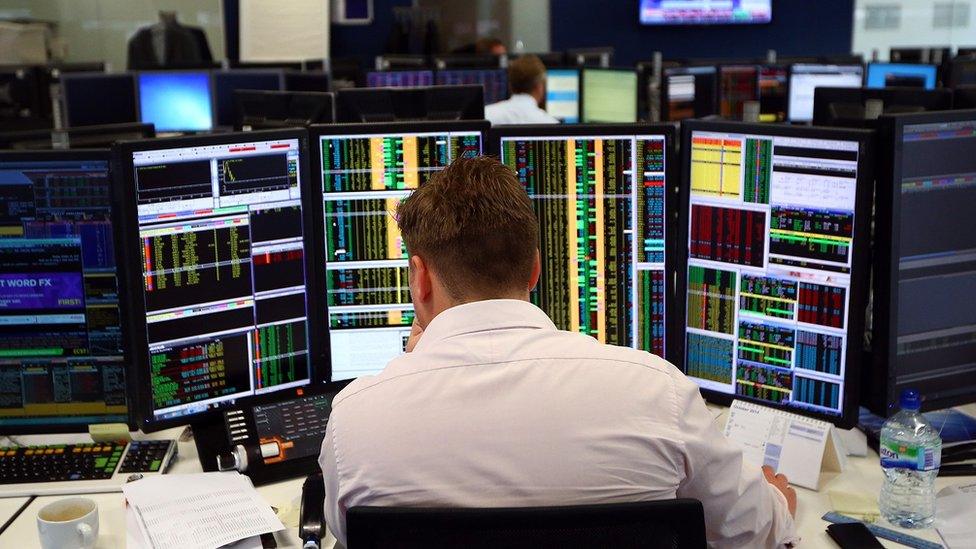Chinese shares higher on central bank liquidity boost
- Published
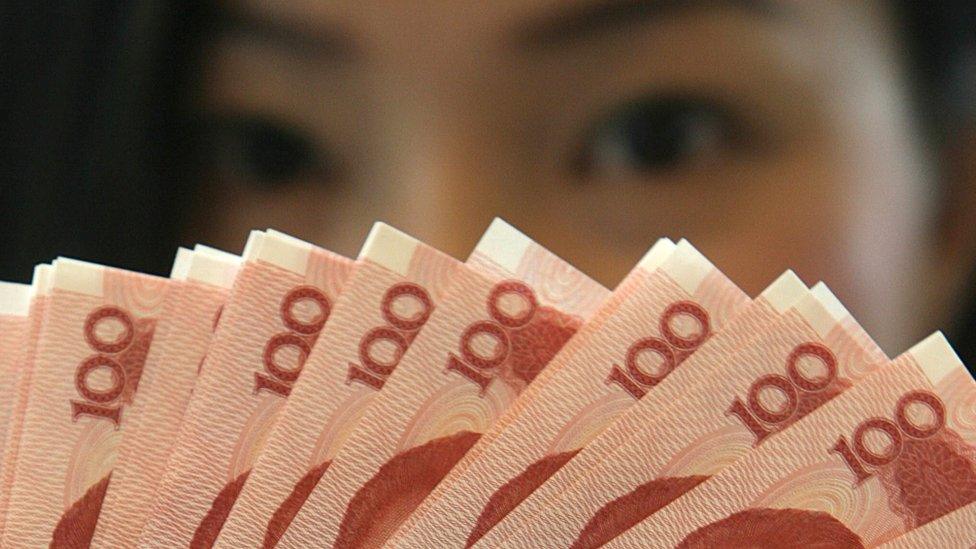
Chinese shares traded higher on Tuesday morning after a fresh stimulus push from the country's central bank.
The mainland benchmark Shanghai Composite finished the day up 1.7% at 2,733.17.
On Monday, the People's Bank of China unexpectedly lowered its Reserve Rate Ratio, cutting the amount of cash the country's lenders must hold in reserve.
The move was designed to boost liquidity and provide more stimulus to China's slowing economy.
It was the first such cut since October and comes after a string of volatile days on the mainland's stock markets.
Fresh economic data out on Tuesday though gave little grounds to reassure investors.
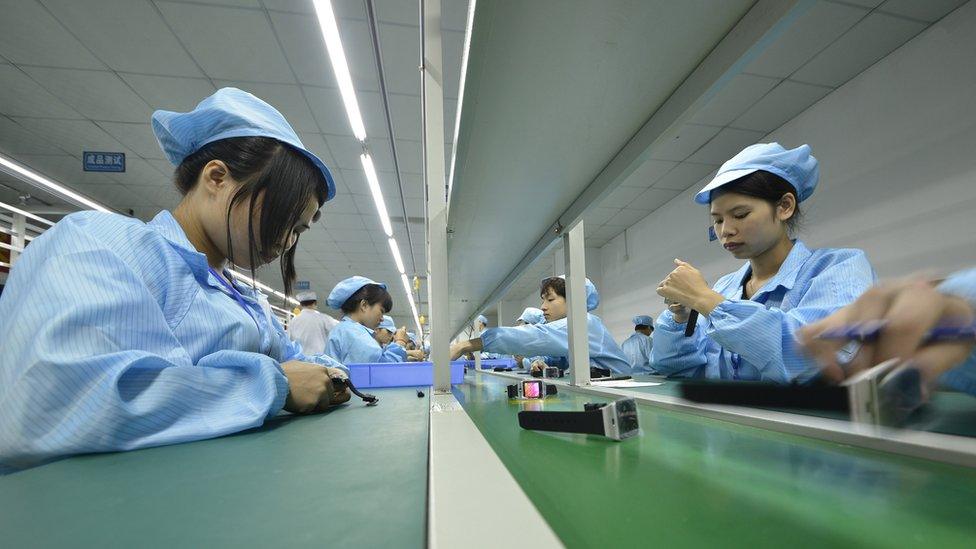
China's manufacturing sector is contracting
The closely watched Purchasing Managers' Index (PMI), a gauge for the manufacturing sector, shrank more than expected in February.
The PMI index stood at 49.0, down from 49.4 the previous month. Any reading below 50 indicates a contraction of the sector.
In Hong Kong, the Hang Seng index closed up 1.55% at 19,407.46.
Weak Japan outlook
In Japan, shares edged higher despite fresh economic data suggesting the eagerly awaited recovery remains elusive.
The Nikkei 225 index closed 0.4% up at 16,085.51.
Earlier, official data showed that household spending was down 3.1% in January, compared to a year earlier.
Along with disappointing company spending, it suggests that efforts to boost investment and domestic spending have so far failed to take effect.
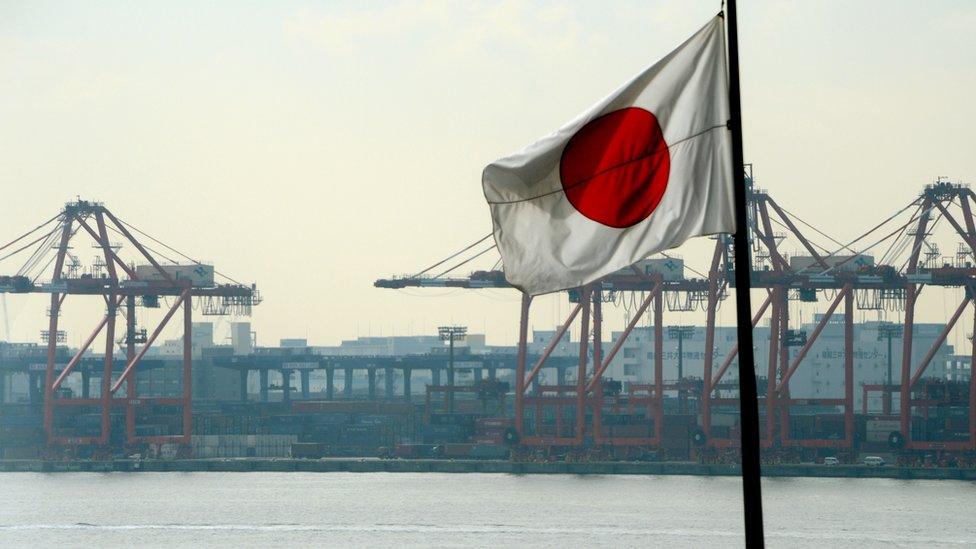
Japan's efforts to boost growth have failed to have an impact
Strong mining stocks
In Australia, the ASX/200 index closed up 0.85% at 4,922.30, boosted by the country's big lenders and some energy firms.
Commodity giants BHP Billiton and Rio Tinto rose 2.95% and 2.7% respectively on hopes for a recovery in oil and commodity prices.
Gold mining company Newcrest climbed more than 4.5% on the strengthening price of the precious metal.
The country's central bank left its lending rates on hold on Tuesday, marking the 10th month in a row the cash rate has remained at a record low of 2%.
Shane Oliver, head economist at AMP Capital in Sydney, said the Reserve Bank of Australia continued "to sound less upbeat" on the global economic outlook.
"Our view remains that the RBA will cut interest rates again this year reflecting the risks around the global economy, weaker than expected commodity prices, still subdued growth in Australia ... a more dovish Fed threatening a higher Australian dollar and continued low inflation," he said.
"However, this may not come till May," he added.
In South Korea, the stock market remained closed for a national holiday.
- Published29 February 2016
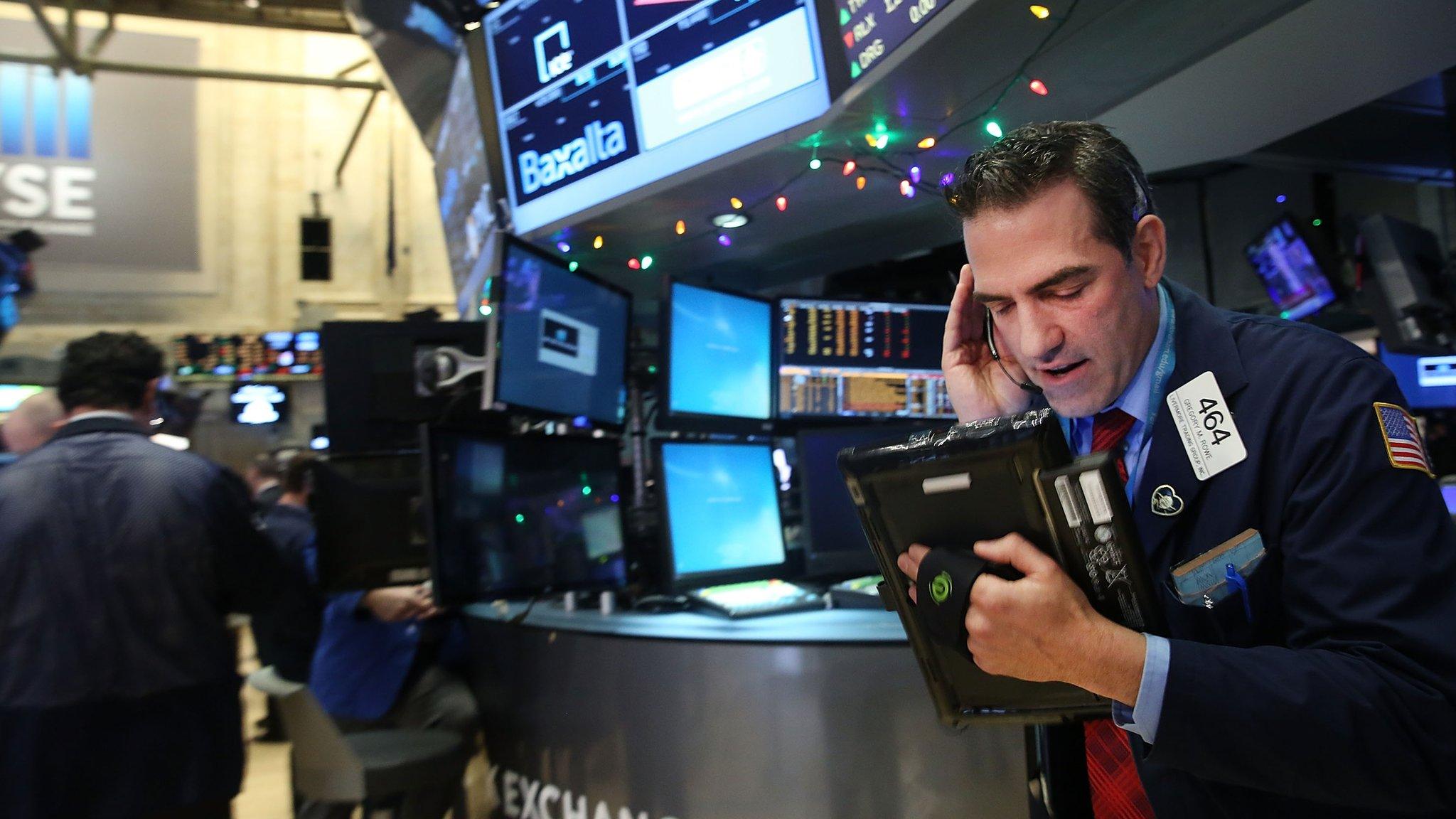
- Published29 February 2016
